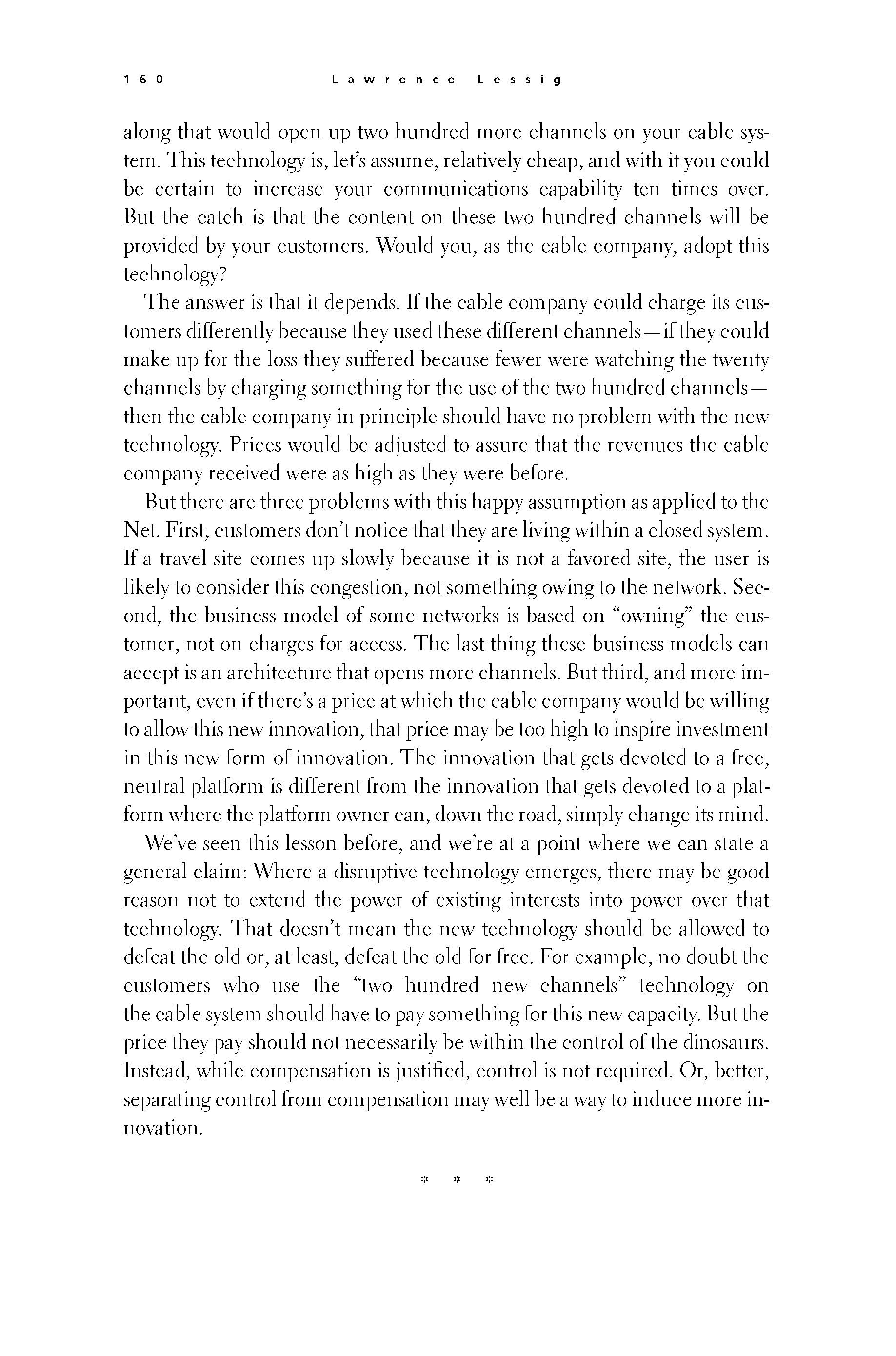 p159 _
-chap- _
toc-1 _
p160w _
toc-2 _
+chap+ _
p161
p159 _
-chap- _
toc-1 _
p160w _
toc-2 _
+chap+ _
p161
along that would open up two hundred more channels on your cable sys-
tem. This technology is, let's assume, relatively cheap, and with it you could
be certain to increase your communications capability ten times over.
But the catch is that the content on these two hundred channels will be
provided by your customers. Would you, as the cable company, adopt this
technology?
The answer is that it depends. If the cable company could charge its cus-
tomers differently because they used these different channels -- if they could
make up for the loss they suffered because fewer were watching the twenty
channels by charging something for the use of the two hundred channels --
then the cable company in principle should have no problem with the new
technology. Prices would be adjusted to assure that the revenues the cable
company received were as high as they were before.
But there are three problems with this happy assumption as applied to the
Net. First, customers don't notice that they are living within a closed system.
If a travel site comes up slowly because it is not a favored site, the user is
likely to consider this congestion, not something owing to the network. Sec-
ond, the business model of some networks is based on "owning" the cus-
tomer, not on charges for access. The last thing these business models can
accept is an architecture that opens more channels. But third, and more im-
portant, even if there's a price at which the cable company would be willing
to allow this new innovation, that price may be too high to inspire investment
in this new form of innovation. The innovation that gets devoted to a free,
neutral platform is different from the innovation that gets devoted to a plat-
form where the platform owner can, down the road, simply change its mind.
We've seen this lesson before, and we're at a point where we can state a
general claim: Where a disruptive technology emerges, there may be good
reason not to extend the power of existing interests into power over that
technology. That doesn't mean the new technology should be allowed to
defeat the old or, at least, defeat the old for free. For example, no doubt the
customers who use the "two hundred new channels" technology on
the cable system should have to pay something for this new capacity. But the
price they pay should not necessarily be within the control of the dinosaurs.
Instead, while compensation is justified, control is not required. Or, better,
separating control from compensation may well be a way to induce more in-
novation.
***
[[160]]
p159 _
-chap- _
toc-1 _
p160w _
toc-2 _
+chap+ _
p161